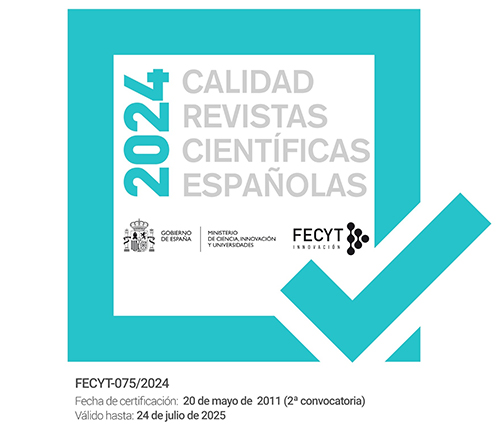Representation, Meaning, and C-Synonymy
DOI:
https://doi.org/10.30827/trif.32780Keywords:
Zalabardo, Representation, Meaning, PragmatismAbstract
This paper gives a brief critical discussion of some elements of the pragmatist view of language defended by José Zalabardo in his book Pragmatist Semantics [Zalabardo (2023)]. I argue that Zalabardo’s pragmatist theory is not clearly stronger than the other pragmatist theories already defended in the literature; partly this is because those other theories may be able to explain the same phenomena as Zalabardo’s view, and partly it is because Zalabardo’s view does not obviously explain those phenomena as well as we might hope.
Downloads
References
DREIER, J. (2004), ‘Meta-Ethics and the Problem of Creeping Minimalism’; Philosophical Perspectives, 18 (1), pp. 23–44. DOI: https://doi.org/10.1111/j.1520-8583.2004.00019.x
KÖHLER, S. (2023), ‘What is (Neo-)Pragmatists? function?’; Australasian Journal of Philosophy, 101 (3), pp. 663–669. DOI: https://doi.org/10.1080/00048402.2022.2034904
PRICE, H. (2011), Naturalism Without Mirrors; Oxford: Oxford University Press.
RIDGE, M. (2009), ‘Moral Assertion for Expressivists’; Philosophical Issues, 19 (1), pp. 182–204. DOI: https://doi.org/10.1111/j.1533-6077.2009.00166.x
SIMPSON, M. (2020), ‘Creeping Minimalism and Subject Matter’; Canadian Journal of Philosophy, 50, pp. 750–755. DOI: https://doi.org/10.1017/can.2020.20
WRIGHT, L. (1973). ‘Functions’; Philosophical Review, 82 (2), 139–168. DOI: https://doi.org/10.2307/2183766
ZALABARDO, J. (2023), Pragmatist Semantics; Oxford: Oxford University Press. DOI: https://doi.org/10.1093/oso/9780192874757.001.0001
Downloads
Published
How to Cite
Issue
Section
License

This work is licensed under a Creative Commons Attribution-NonCommercial 4.0 International License.













